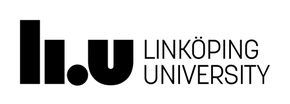Intelligent Transport Systems and Logistics

Well-designed transport and logistics systems are fundamental to individual mobility, commerce, welfare and economic growth. With ever-increasing volumes of traffic and goods, future transport systems face a huge challenge: How to balance the need for speedy, efficient and sustainable transport with the negative impacts of congestion, pollution and fatalities? The answer lies in a tighter integration of telecommunications and information technology. Autonomous driving is already a reality, and the electrification of roads has begun. Vehicles are connected to each other and to the infrastructure in smart cities, enabling the collection of all sorts of data for analysis and management of movements of people and goods.
Traffic and Logistics
Through a multi-disciplinary approach, you will acquire engineering and managerial skills to understand, develop and control future transport and logistics systems. You will use optimisation and simulation tools and study mobile communication, positioning systems, road safety, and project management.
For the second and third semester you may specialise towards Traffic or Logistics:
- Traffic
The analysis of travel patterns and traffic flows in order to design well-functioning traffic systems using computer-based models.
- Logistics
Supply chain planning and modelling. How the flow of products, services and information between producers and customers can be optimised to satisfy supply and demand in the most efficient way possible.
You may also pick and mix courses from both areas, or add courses in Smart Cities or Internet of Things. The final semester is dedicated to your thesis which is usually written in close collaboration with a company, city, or government body.
Frontline research
You need strong skills in mathematics and an analytical mind – programming experience is a distinct advantage. You will carry out group-based lab practicals and project work. Many courses are continuously assessed through hand-in assignments and reports. Oral and written communication is an integral part of the programme, to prepare students for international management positions.
Į magistro studijų programas gali stoti visi, baigę universitetą arba besimokantys paskutiniame kurse. Studijos kurias baigei ar tebesimokai turi būti panašios krypties kaip ir tos, į kurias nori stoti, kadangi priėmimas yra paremtas ECTS kreditų suderinamumu.
ECTS kreditų išrašas - jei dar nesi baigęs aukštosios mokyklos, būtina prisegti ECTS kreditų išrašą, kuriame būtų matyti, kokius dalykus Tu mokeisi bei kokius pažymius ir kiek kreditų už juos gavai. Kai siunti anketą paskutiniame kurse, diplomą reikia prisegti vėliau, kai tik jį gausi.
Jei dar nesi baigęs aukštosios mokyklos, prie anketos būtinai turi prisegti šį užpildytą dokumentą, patvirtinantį, kad studijuoji ir šiais metais baigsi savo studijas. Dokumentas turi būti patvirtinas universiteto administracijos.
Bakalauro diplomas – jei jau esi baigęs aukštąją mokyklą, išrašo nereikia, užtenka prie anketos prisegti savo Bakalauro diplomą.
Svarbu, jog anglų kalbos testo sertifikatą ir visus kitus reikalingus dokumentus atsiųstum iki balandžio 10d. Anglų kalbos žinias gali patvirtinti vienu iš šių būdų:
IELTS – 6.5 (ne mažiau nei 5.5 iš kiekvienos dalies).
TOEFL - 90. Ne mažiau 20 (iš 30) taškų turi būti surinkta writing dalyje. TOEFL testo rezultatai privalo būti nusiųsti tiesiogiai iš centro, kuriame laikei testą.
Išimtis! Asmenims, turintiems brandos atestatą, kuriame nurodytas anglų kalbos B2 lygis anglų kalbos testo laikyti nereikia
- Bachelor's degree with a major in an engineering subject, or equivalent.
- 22 ECTS credits in mathematics/applied mathematics and/or application of mathematics relevant for the programme, including courses in linear algebra, calculus and mathematical statistics.
Note. You must provide your Bachelor's degree syllabus to prove you have required credits in particular subjects.

